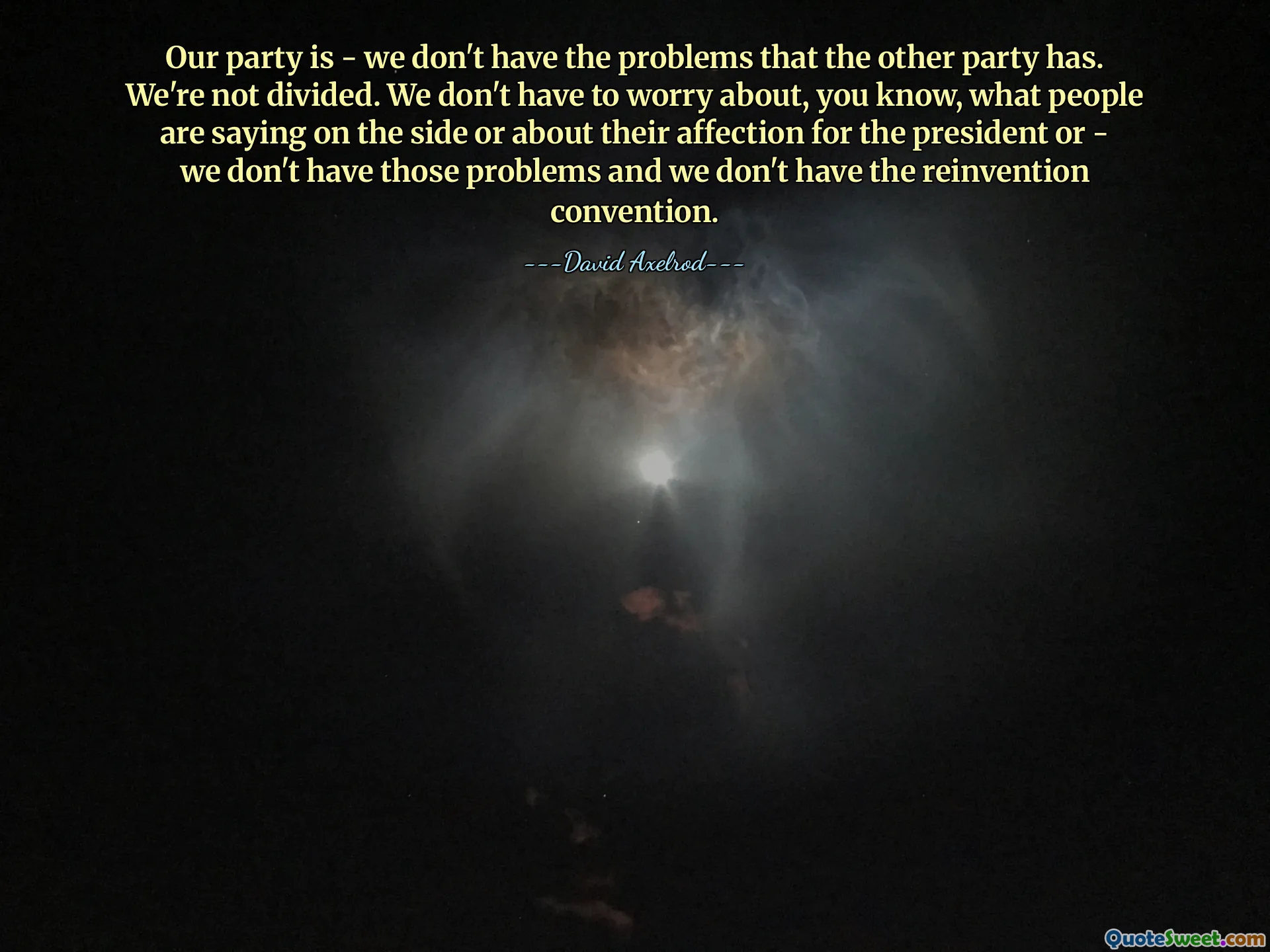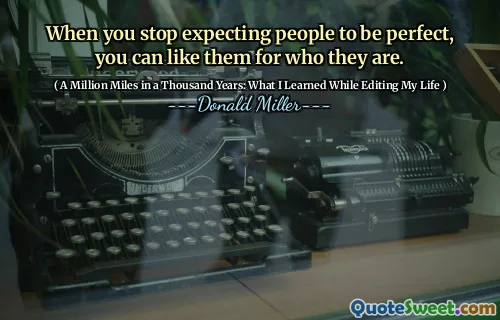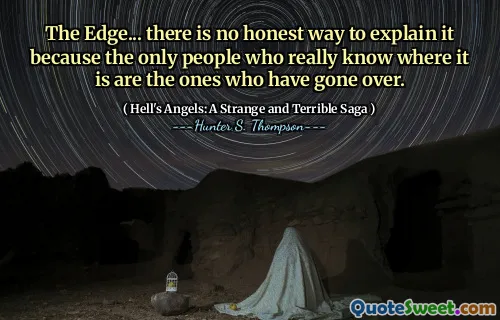
Our party is - we don't have the problems that the other party has. We're not divided. We don't have to worry about, you know, what people are saying on the side or about their affection for the president or - we don't have those problems and we don't have the reinvention convention.
This quote reflects a portrayal of confidence and unity within a political party, emphasizing its stability and coherence compared to opposition groups. The speaker aims to project an image of strength by asserting that their party remains free from internal divisions and controversies that might plague other parties. Such a narrative seeks to reassure supporters and potential voters that the party is a well-oiled entity, untroubled by factional disputes or external criticisms. The mention of not having to worry about opinions or allegiances directed at the president highlights a focus on loyalty and clear identity, contrasting with the potential volatility of other political groups.
From a strategic standpoint, this kind of rhetoric serves to differentiate the party from its competitors, presenting it as the more reliable, unified choice for governance. It also subtly addresses concerns about internal conflict and ideological inconsistencies, which are often critical vulnerabilities in political contests. The phrase about not needing a 'reinvention convention' conveys confidence that the party's current approach is sound and trustworthy, dismissing the need for dramatic overhaul or radical change. Overall, the quote encapsulates a self-assured image of political steadiness and cohesion, likely aimed at solidifying support and discouraging dissent.
In a broader sense, this statement reveals the importance in politics of narrative and perception. Even if all parties face challenges internally, projecting unity and stability can be a powerful tool in political campaigns and governance perception. Such declarations can encourage voter trust and diminish opposition influence, fostering an image of inevitability and strength.











